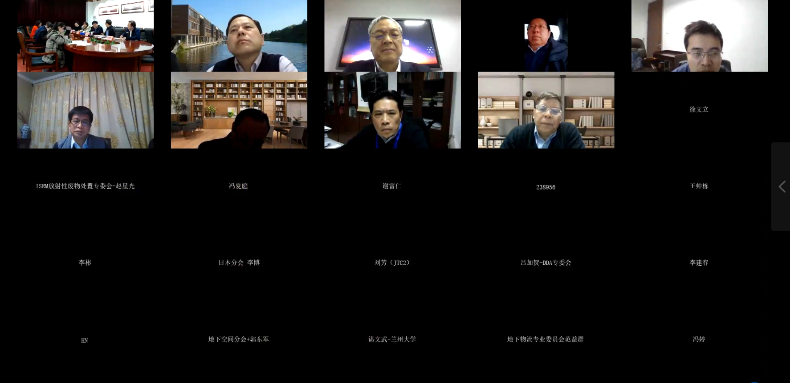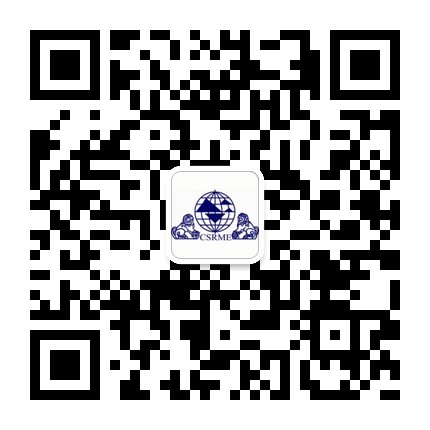CSRME Held the First Working Conference on International Exchanges and Cooperation in 2021
发布时间:2021年04月02日
浏览数:5718
To promote international exchanges and cooperation, strengthen the understanding of the work of international organizations, and promote the mutual exchanges and communication of the international special committees in which Chinese experts serve, CSRME held the first video conference on international exchange and cooperation on February 25, 2021. This conference was presided over by Professor Manchao He who is an academician of Chinese Academy of Sciences, the president of the CSRME, and the chairman of the ISRM China Group. More than 50 people attended the conference, including Professor Xia-ting Feng (an academician of the Chinese Academy of Engineering, the president of the CSRME, and the chairman of the FedIGS), Professor Fawu Wang (a foreign academician of Japan Academy of Engineering, the chairman of ICGdR), and Professor Qiang Yang (the vice president of the ISRM). This conference was also attended by the vice-chairman of the ISRM China Group including Professor Chun'an Tang, Professor Yishan Pan, Professor Xibing Li, Professor Shengwu Song, Professor Gengshe Yang, Professor Hehua Zhu, and Professor Yueping Yin (the vice president of CSRME, also in charge of international exchange of the 14th Five-Year Plan). Furthermore, professor Xiaojie Yang (the secretary-general of the CSRME) and staff members who came from various international organizations, the relevant special committees of the CSRME, and the secretariat of the ISRM China group are also present at the conference.

Firstly, professor Qiang Yang gave a brief report on the recent work done by the ISRM, and conveyed the working spirit of the Chinese Association for Science and Technology (CAST) in foreign affairs. Then, professor Yueping Yin presented the overall work plan for CSRME's international exchanges during the "14th Five-Year Plan" and the expected results. Then, Wenli Xu, the secretary-general of the ISRM China Group, reported the international work of the CSRME in 2020 and the work plan for 2021. Dr. Zhuo Wang, the director of the academic development department in CSRME, reported the work plan and progress of ARMS11. And then 8 special committees of the ISRM reported the work in 2020 and work plan in 2021. They particularly highlighted their involvement in ARMS 11. The International Exchange Committee, the Japanese branch and the North American branch of the CSRME exchanged views on the above-mentioned work respectively.
At the conference, some international organizations also introduced their work. These international organizations include Federation of International Geo-engineering Societies (FedIGS), the International Consortium on Geo-disaster Reduction (ICGdR), the Associated Research Centers for the Urban Underground Space (ACUUS) and the International Society on Underground Freight Transportation System (ISUFT). This is the first time that the CSRME systematically and comprehensively conducted exchange activities with relevant international organizations within the framework of the CSRME.
After the work reports, Professor firstly gave a speech. He pointed out that it is a good way to hold the working conference on international exchanges through video conferencing, all the organizations that attended the Conference can learn from each other and communicate with each other. It will be conducive to raise awareness, promote their development and increase China's international influence. He also said that the special committees, relevant institutions and international organizations should increase their influence in future work, this will be in favor of strengthening China's international profile.
At the end, professor Manchao He, the president of the CSRME and the chairman of the ISRM China group, made a concluding speech. On behalf of the CSRME and the Party Committee of the CSRME, he thanked to the special committees and institutions for their work and preparations, and declared the conference a complete success. He believed that this conference comprehensively summarized the international work in 2020 and made a rigorous deployment for 2021. He made the work arrangements in the following five aspects:
1) He emphasized emphasized the important significance of managing ARMS11 well. ARMS11 is the landmark work of the institute, and is an important part of the strategic deployment of the CSRME reform.
2) Two dimensions and three aspects of the reform of the CSRME are elaborated. The first dimension is "breadth", which overcomes fragmentation, integrates all special committees of the country, and organizes a general meeting every year. he second dimension is "depth". CSRME has conducted in-depth discussions on a particular topic, for example, it has organized a series of in-depth discussions on some important traffic engineering and domestic software in geotechnical engineering in China. The three aspects are "Scale, Internationalization and Trinity". In the process of academic reform, due to various factors, internationalization is currently considered as a shortcoming of the CSRME. The Party Committee and Council of the CSRME decided to hold an international exchange conference every year to strengthen the international work. He expected that the internationalization of the CSRME will make a significant progress after the end of the "14th Five-Year Plan". For this purpose, he pointed that ARMS11 was the key internationalization work in 2021, and CSRME should do a good job in the preparations for the ARMS11 conference.
3) CSRME needed to strengthen the cultivation for Chinese young scientists on international awards such as Rocha Award, and send Young talents to ISRM through the bridge and link of the CSRME.
4) He clarified the position and responsibilities of the International Exchange Working Committee of CSRME. The International Exchange Working Committee is different from the ISRM China Group, and it is the secondary institution of the CSRME. Its mission is to "bring in" the most advanced academic theories and technologies from abroad, to "go global" the domestic theories and technologies and to organize international action plans and scientific investigation activities for common scientific problems.
5) He also called for paying more attention to the original innovation work, the "zero to one research" and the effective applications, and to carry out the scientific innovation work in the field of rock mechanics and engineering.









 中国岩石力学与工程学会微信订阅号
中国岩石力学与工程学会微信订阅号
 科普岩石力学与工程
科普岩石力学与工程